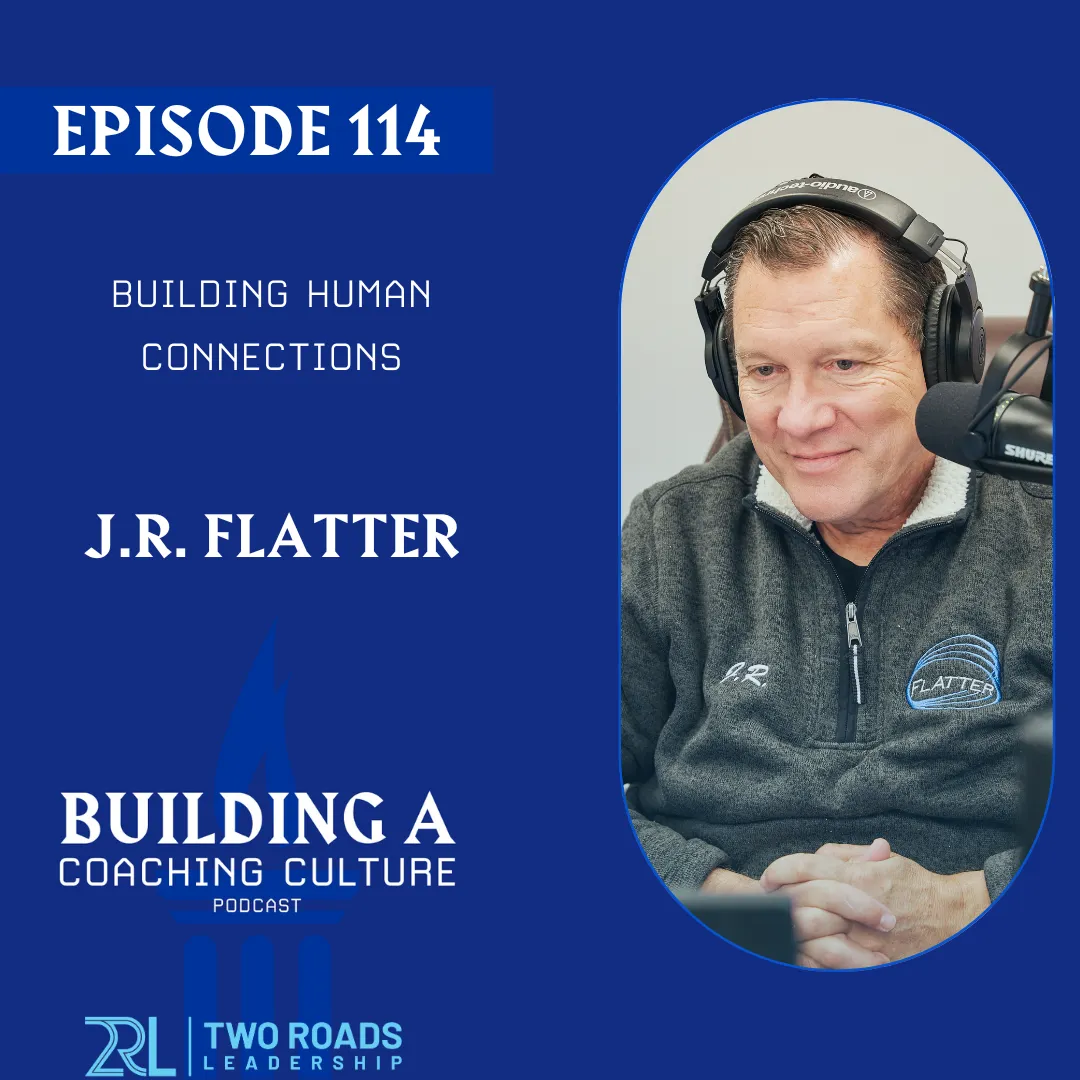In today's episode, J.R. and Lucas Flatter dive into topics like emotional intelligence, motivating employees, creating an atmosphere of trust and vulnerability, and genuinely connecting with coworkers on a human level. With a focus on transitioning from a purely technical/cognitive mindset to an approach that prioritizes the emotional needs of employees, the hosts share insights from their own experiences as leaders and offer advice for building strong teams through coaching and authentic relationships. Join us as we unpack the layers of creating a thriving, emotionally intelligent workplace that respects and uplifts everyone.
Key topics covered include:
- How can leaders determine and align the technical, cognitive, and emotional intelligence needs of their teams
- The Evolution of Career Development
- How to understand Workplace Dynamics
- The role of Genuine Interest and Humility
Building a Coaching Culture is presented by Two Roads Leadership
Produced, edited, and published by Make More Media
Episode Links
J.R. Flatter
Founder of Two Roads Leadership
Lucas Flatter
Resources
2RL 4 day Coach Certification Bootcamp
2RL ICF-Approved Coach Certifications and Trainings
Transcript
Automatic Transcription - please excuse any errors

